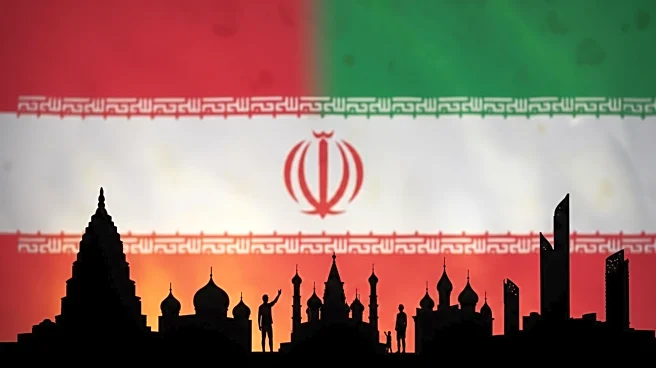What is the story about?
What's Happening?
Iran's Foreign Minister Abbas Araghchi is set to hold a telephone conference with French, German, and British counterparts to avert the reimposition of United Nations sanctions related to Tehran's nuclear program. This call comes as the European nations threaten to use the 'snapback' mechanism from the 2015 nuclear deal to reinstate sanctions. The urgency is heightened by Iran's recent cessation of cooperation with the International Atomic Energy Agency (IAEA) following a conflict with Israel, which has increased international concerns about Iran's uranium enrichment activities.
Why It's Important?
The potential reimposition of UN sanctions could significantly impact Iran's economy and its international relations. The European nations are concerned about Iran's uranium enrichment levels, which are nearing weapons-grade, posing a threat to regional and global security. The situation also affects diplomatic relations, as Iran's actions could lead to increased tensions with Western countries, potentially influencing global nuclear non-proliferation efforts and regional stability.
What's Next?
The deadline for the 'snapback' mechanism is approaching, with European nations urging Iran to find a satisfactory solution by August 31. Failure to reach an agreement could lead to the reimposition of sanctions, further isolating Iran internationally. The IAEA's access to Iran's nuclear sites remains a critical issue, and its resolution is essential for any diplomatic progress.
Beyond the Headlines
Iran's threat to arrest IAEA Director-General Rafael Mariano Grossi complicates diplomatic efforts and highlights the strained relations between Iran and international nuclear oversight bodies. The expiration of the 'snapback' power in October adds pressure on European nations to act swiftly, as future sanctions could face vetoes from UN Security Council members like China and Russia.















